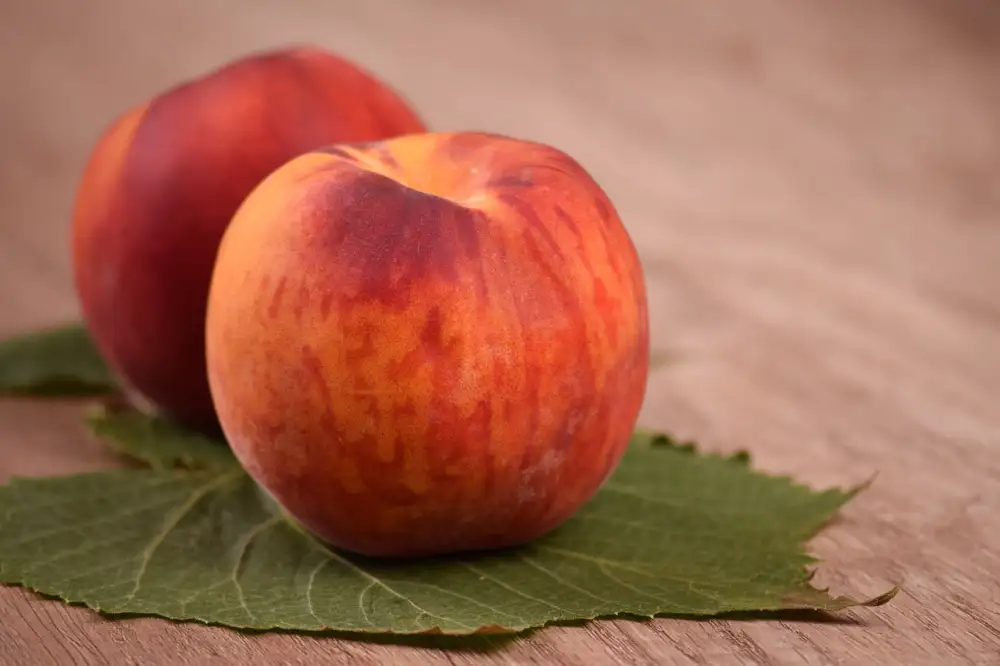Revitalize Your Health with the Ultimate Juice Diet: Unleash the Power of Natural Juices for a Healthier You!

Are you looking for a natural and effective way to revitalize your health? Look no further than the ultimate juice diet! This popular diet trend has taken the health and wellness world by storm, promising to unleash the power of natural juices for a healthier you. Whether you're aiming to lose weight, detoxify your body, or simply boost your overall well-being, the juice diet can be a game-changer. Get ready to embark on a flavorful journey that will leave you feeling refreshed and rejuvenated.
Benefits of the Juice Diet
The juice diet offers numerous benefits for those looking to revitalize their health. Firstly, it provides a quick and convenient way to consume a wide variety of fruits and vegetables, ensuring that you receive an abundance of essential vitamins, minerals, and antioxidants. These nutrients are crucial for maintaining a strong immune system, promoting healthy digestion, and improving overall well-being.
Additionally, the juice diet can aid in weight loss by reducing calorie intake while still providing necessary nutrients. The juices are low in fat and high in fiber, which helps to keep you feeling full and satisfied. This can lead to decreased cravings for unhealthy snacks and ultimately result in shedding unwanted pounds.
Furthermore, the juice diet is known to improve digestion and detoxify the body. Freshly squeezed juices contain enzymes that assist in breaking down food more efficiently, allowing for better absorption of nutrients. They also help to flush out toxins from the body, leaving you feeling refreshed and rejuvenated.
Lastly, many individuals report increased energy levels when following a juice diet. By eliminating processed foods and consuming nutrient-dense juices instead, your body receives a natural boost of energy without relying on caffeine or sugar.
Overall, the juice diet offers a range of benefits including improved nutrient intake, weight loss support, enhanced digestion, detoxification, and increased energy levels. It is a powerful tool for revitalizing your health and achieving a healthier you!
How the Juice Diet Works
The juice diet is a popular detoxification and weight loss method that involves consuming only fresh, natural juices for a certain period of time. The idea behind this diet is to flood your body with essential vitamins, minerals, and antioxidants found in fruits and vegetables, while giving your digestive system a break from processing solid foods.
During the juice diet, you will replace all meals and snacks with freshly made juices. These juices are typically made using a combination of fruits, vegetables, and herbs. They can be consumed throughout the day at regular intervals to keep you nourished and hydrated.
The main principle behind the juice diet is that by consuming only liquids, your body can easily absorb nutrients without expending much energy on digestion. This allows your body to focus on cleansing toxins and promoting healing from within.
By eliminating solid foods from your diet, the juice diet helps to reset your taste buds and reduce cravings for unhealthy foods. It also provides a significant calorie deficit, which can lead to weight loss if followed consistently.
It's important to note that the juice diet should not be followed for an extended period of time as it may not provide all the necessary nutrients required for long-term health. It is typically recommended to follow the juice diet for a short duration, such as 3-7 days, under the guidance of a healthcare professional or nutritionist.
Remember, while the juice diet can be an effective way to jumpstart weight loss and improve overall health, it should be approached with caution and in moderation.
Types of Juices to Include in the Diet
When it comes to the Juice Diet, the options are endless. Incorporating a variety of juices into your diet ensures that you receive a wide range of nutrients and flavors. Here are some types of juices to include in your juice diet:
1. Green Juices: Packed with leafy greens like spinach, kale, and cucumber, green juices are rich in vitamins, minerals, and antioxidants. They help detoxify the body and boost energy levels.
2. Citrus Juices: Oranges, lemons, grapefruits - citrus fruits are bursting with vitamin C and other essential nutrients. These juices are refreshing and can enhance your immune system.
3. Beetroot Juice: Known for its vibrant color, beetroot juice is a powerhouse of nutrients such as iron, folate, and antioxidants. It aids in detoxification and supports cardiovascular health.
4. Carrot Juice: Carrots are high in beta-carotene, which converts to vitamin A in the body. Drinking carrot juice improves vision health and promotes glowing skin.
5. Berry Juices: Blueberries, strawberries, raspberries - these juicy delights are loaded with antioxidants that fight inflammation and protect against diseases.
6. Watermelon Juice: Perfect for summer days, watermelon juice is hydrating and low in calories. It also contains lycopene which supports heart health.
Remember to experiment with different combinations of fruits and vegetables to find the flavors that suit your taste buds best. Enjoy the journey of discovering new tastes while nourishing your body!
Tips for a Successful Juice Diet
1. Choose fresh, organic fruits and vegetables: Opt for locally sourced produce to ensure maximum freshness and nutrient content in your juices.
2. Variety is key: Include a wide range of fruits and vegetables in your juice recipes to ensure you're getting a diverse array of vitamins, minerals, and antioxidants.
3. Drink plenty of water: While juices are hydrating, it's important to also drink enough water throughout the day to stay properly hydrated.
4. Listen to your body: Pay attention to how your body responds to different juices and adjust accordingly. If certain ingredients don't agree with you, try alternative options.
5. Incorporate fiber-rich ingredients: To maintain healthy digestion, consider adding fiber-rich ingredients like chia seeds or flaxseeds to your juices.
6. Stay active: Combine your juice diet with regular exercise to enhance its benefits and support overall health and well-being.
7. Plan ahead: Prepare your juices in advance and store them properly in airtight containers or bottles for convenience throughout the day.
8. Gradually reintroduce solid foods: After completing the juice diet, slowly reintroduce solid foods into your diet by starting with light meals such as salads or soups.
Remember, consulting with a healthcare professional or nutritionist before starting any new diet is always recommended for personalized guidance and advice.
Potential Risks and Considerations
While the juice diet offers numerous health benefits, it is important to be aware of potential risks and considerations before embarking on this journey. Here are a few things to keep in mind:
1. Nutrient deficiencies: Although juices are packed with vitamins and minerals, they may not provide all the nutrients your body needs. It is essential to ensure you are getting a balanced intake of proteins, fats, and carbohydrates alongside your juice consumption.
2. Blood sugar spikes: Some juices can cause a rapid increase in blood sugar levels due to their high natural sugar content. If you have diabetes or other blood sugar-related conditions, it is crucial to monitor your blood sugar levels closely and consult with a healthcare professional.
3. Lack of fiber: Juicing removes the fiber content from fruits and vegetables, which plays a vital role in digestion and satiety. Without fiber, you may experience digestive issues such as constipation. It is recommended to incorporate whole fruits and vegetables into your diet alongside the juices to maintain adequate fiber intake.
4. Weight loss sustainability: While the juice diet can lead to initial weight loss, it may be challenging to sustain long-term weight management solely through juicing. It is important to adopt healthy eating habits beyond the juice diet for sustainable results.
5. Allergies and sensitivities: Certain fruits or vegetables used in juices may trigger allergies or sensitivities in some individuals. Be mindful of any reactions or discomfort after consuming specific juices and consult with an allergist if needed.
Before starting any new diet plan, it is advisable to consult with a healthcare professional or registered dietitian who can guide you based on your individual health needs and goals. They can help tailor the juice diet according to your specific requirements while minimizing potential risks or complications.
Frequently Asked Questions about the Juice Diet
1. Is the juice diet suitable for everyone?
The juice diet is generally safe for most people, but it may not be suitable for individuals with certain medical conditions or those who are pregnant or breastfeeding. It's always best to consult with a healthcare professional before starting any new diet.
2. Can I still eat solid food while on the juice diet?
The juice diet typically involves replacing meals with juices, but some variations allow for consuming small amounts of solid food. It's important to follow a plan that suits your needs and goals, and always prioritize nutrient-rich juices over processed foods.
3. Will I lose weight on the juice diet?
Many people experience weight loss on the juice diet due to its low-calorie nature. However, individual results may vary depending on factors such as metabolism and activity level. It's essential to focus on overall health rather than solely relying on weight loss as a measure of success.
4. Can I exercise while on the juice diet?
Moderate exercise is generally safe during the juice diet, but it's crucial to listen to your body and adjust your activity level accordingly. Be mindful of potential energy fluctuations and ensure you're getting enough nutrients to support physical activity.
5. How long should I follow the juice diet?
The duration of the juice diet varies depending on personal goals and preferences. Some people choose to do a short-term cleanse lasting a few days, while others incorporate juices into their long-term lifestyle. It's important to find a balance that works for you and supports your overall well-being.
6. Are there any side effects of the juice diet?
While some people may experience temporary side effects like headaches or fatigue during the initial stages of the juice diet, these symptoms usually subside as the body adjusts. However, if you have any concerns or experience severe symptoms, it's advisable to seek medical advice.
Remember, before starting any new dietary regimen, it's essential to consult with a healthcare professional to ensure it aligns with your specific needs and goals.
The juice diet can be a powerful tool for revitalizing your health and achieving your wellness goals. It offers numerous benefits, including weight loss, increased energy levels, improved digestion, and enhanced nutrient intake. However, it is essential to consider several factors before embarking on this diet.
Firstly, the juice diet may not be suitable for everyone. Pregnant or breastfeeding women, individuals with certain medical conditions, and those taking specific medications should consult with their healthcare provider before starting this diet.
Secondly, the juice diet requires commitment and discipline. It involves consuming only juices for a specific period, which can be challenging for some individuals. It is important to have realistic expectations and be prepared for potential detox symptoms during the initial phase.
Lastly, it is crucial to ensure that you are getting all the necessary nutrients while on the juice diet. While juices are packed with vitamins and minerals, they may lack in other essential nutrients like protein and healthy fats. Therefore, it is advisable to incorporate a variety of juices and consider adding supplements if needed.
In conclusion, the juice diet can be an effective way to revitalize your health and kickstart a healthier lifestyle. However, it is important to assess whether it aligns with your individual needs and goals. Consulting with a healthcare professional or nutritionist can provide valuable guidance in determining if the juice diet is right for you. Remember to listen to your body's needs and make informed decisions about your dietary choices for long-term success.
Published: 08. 12. 2023
Category: Health



